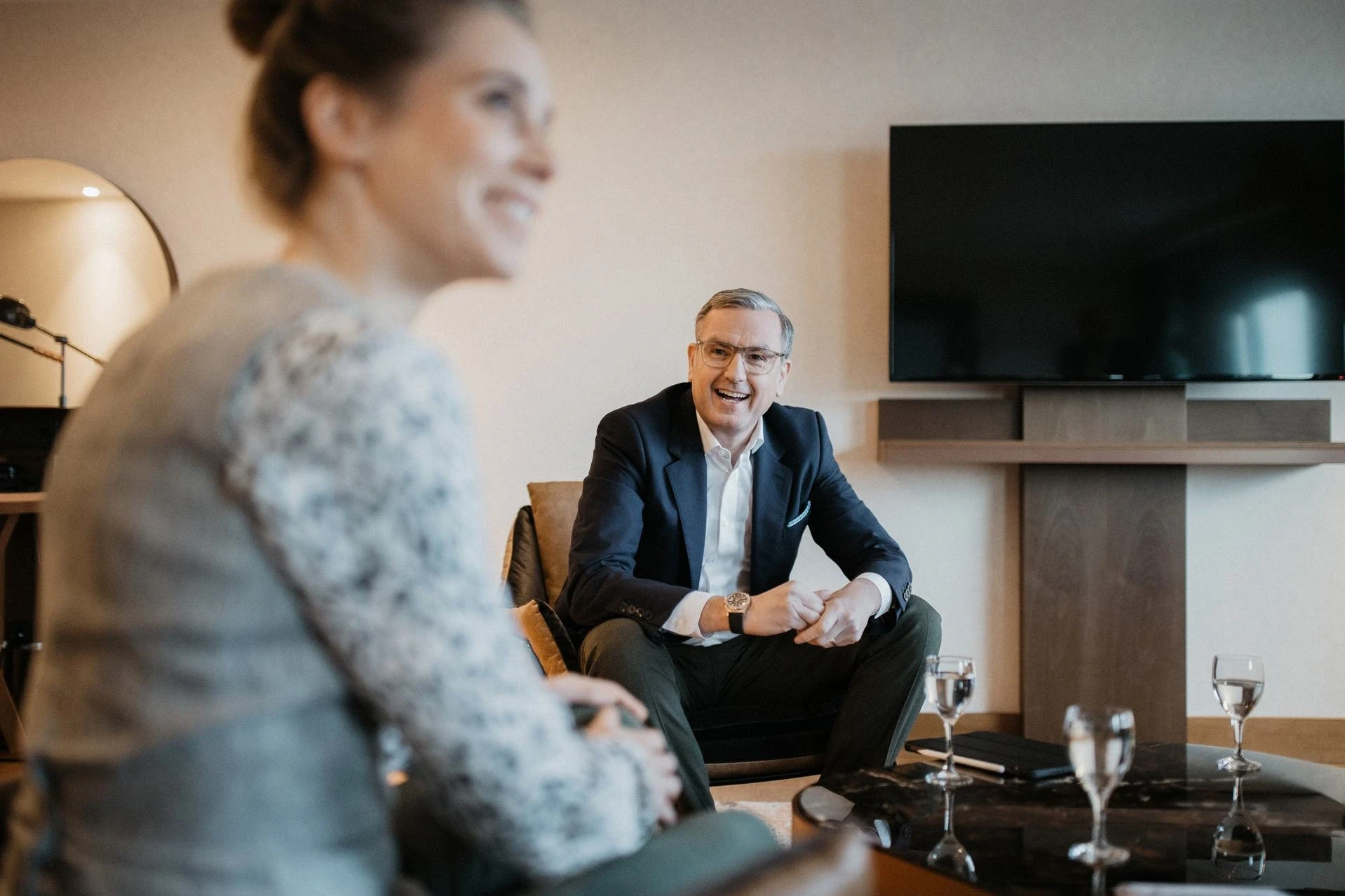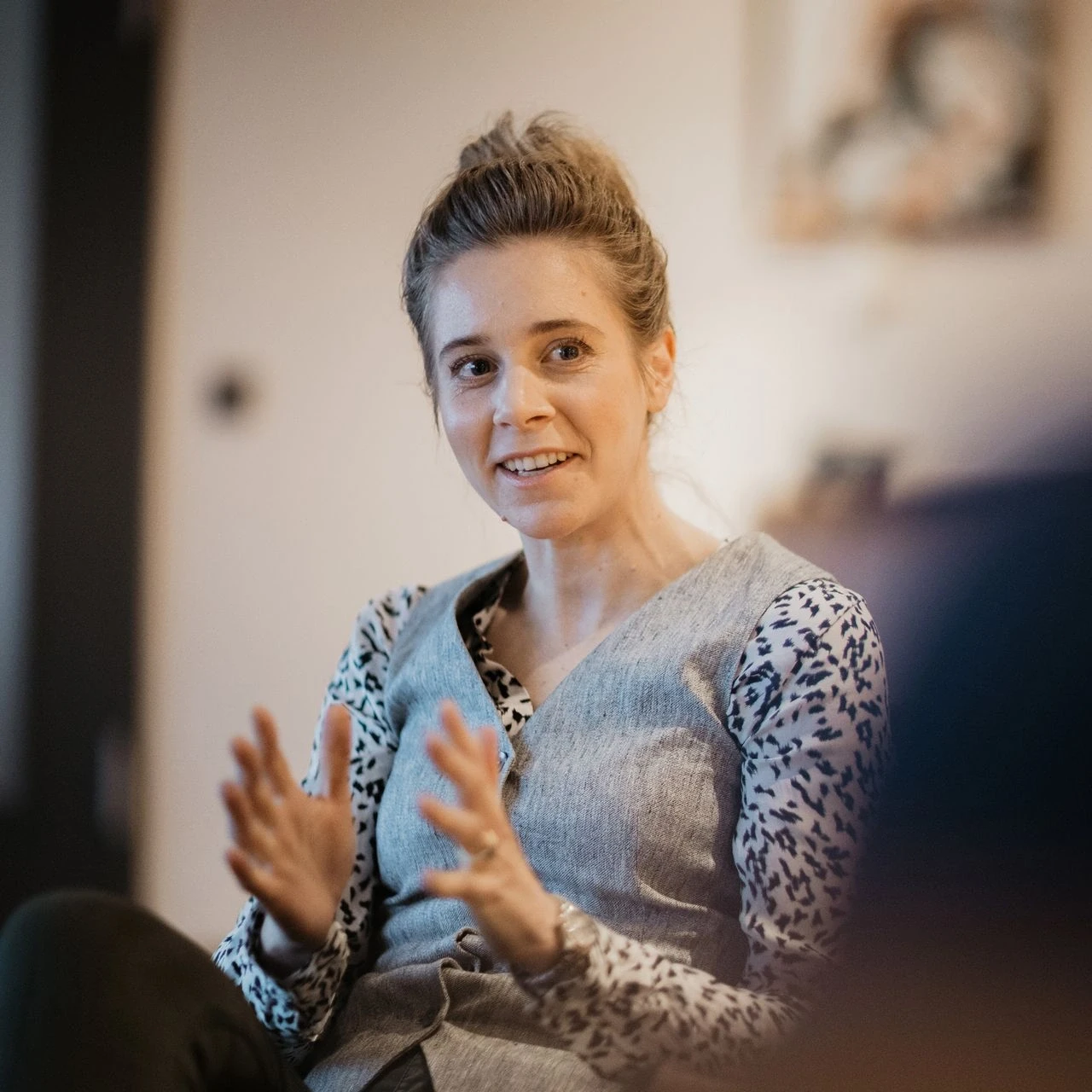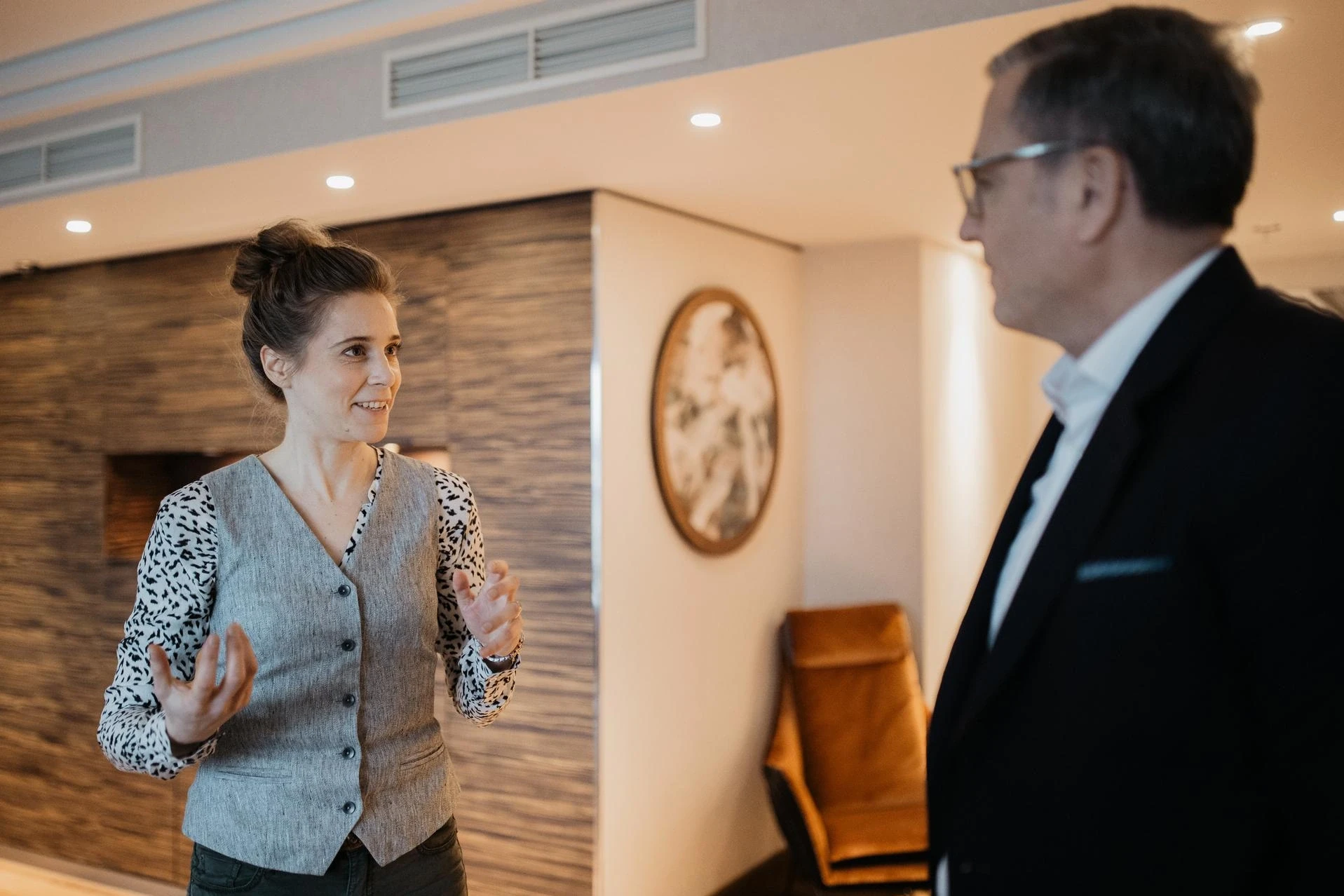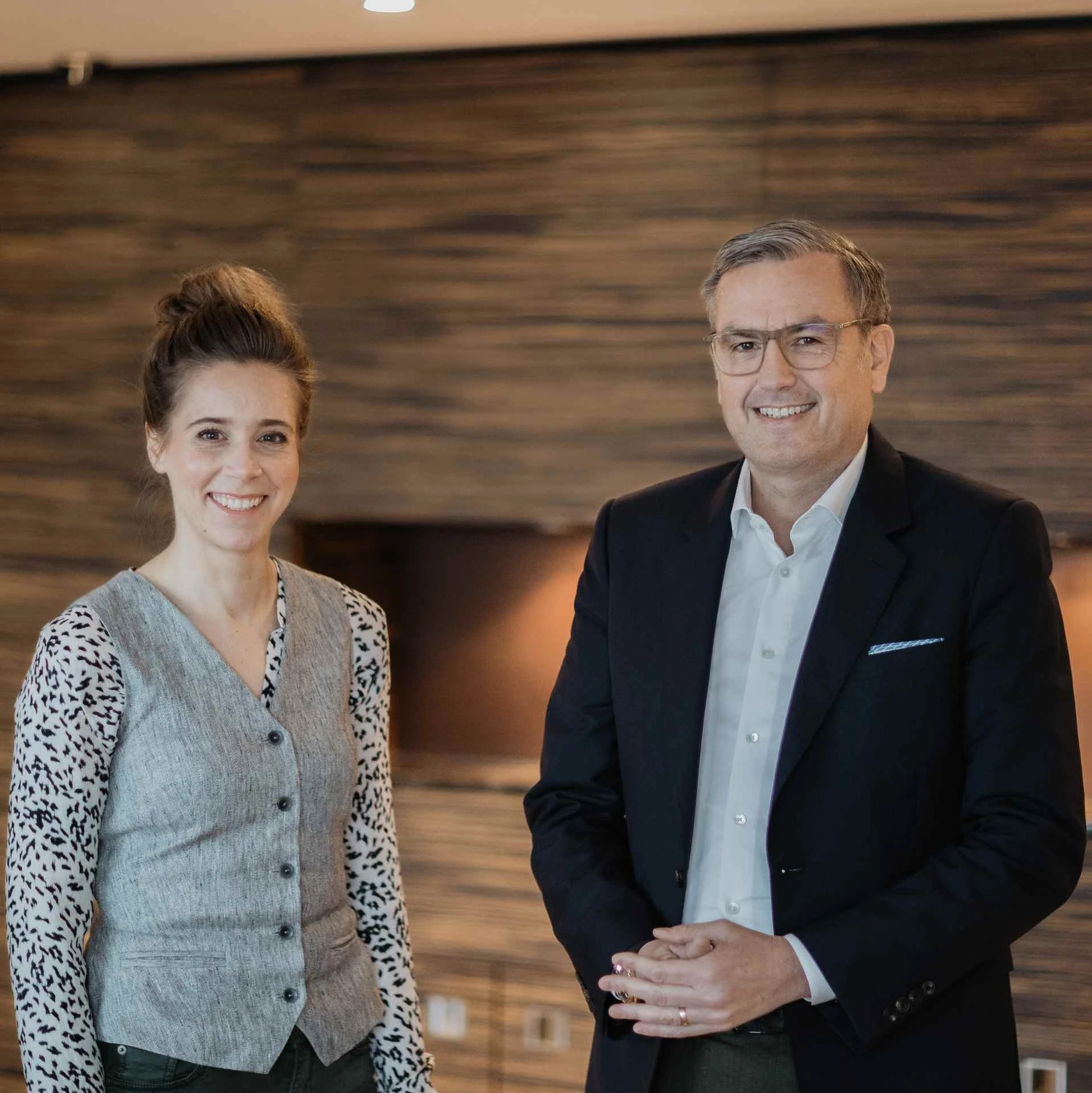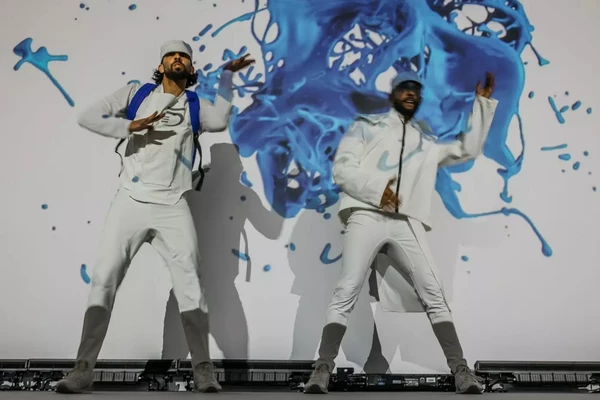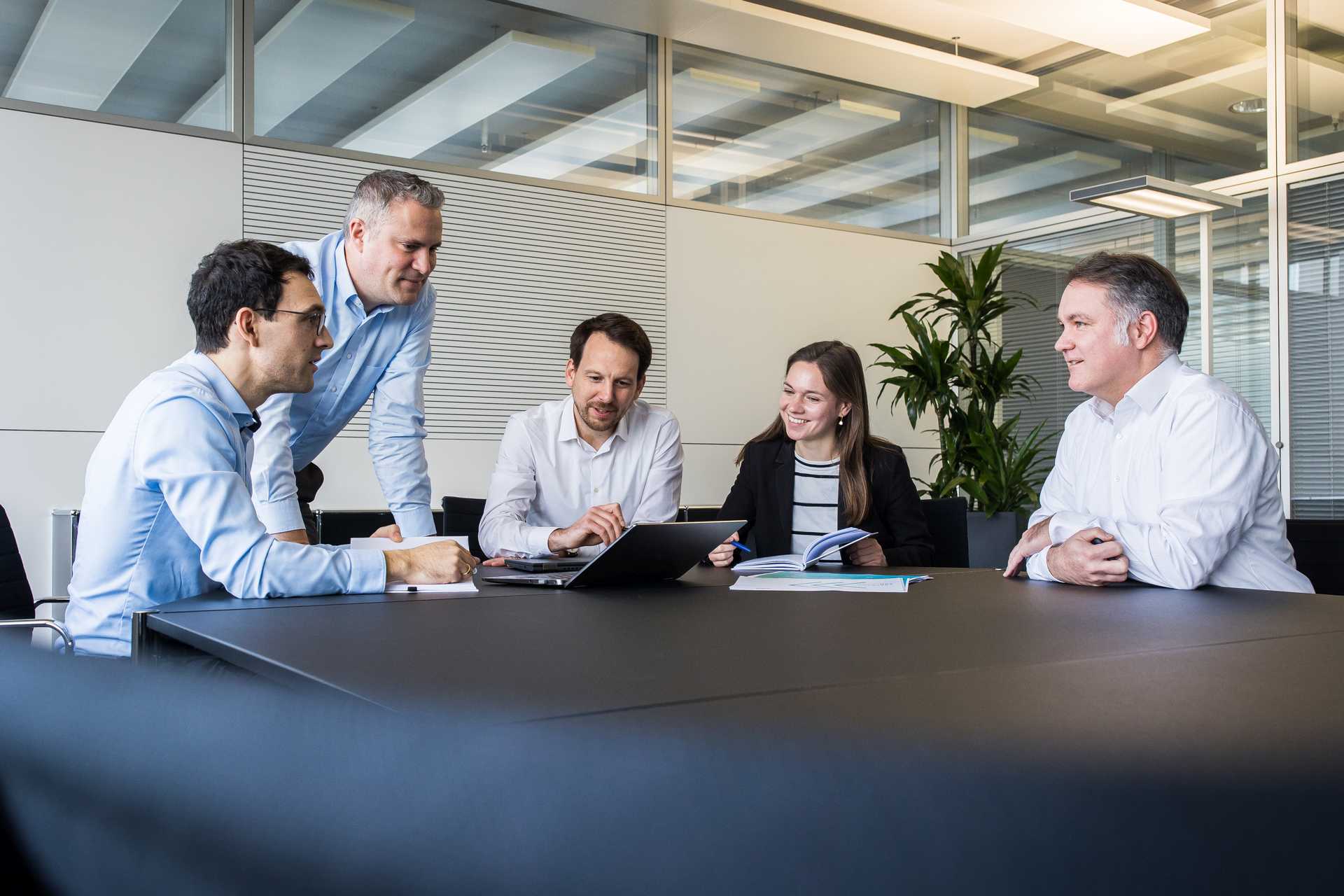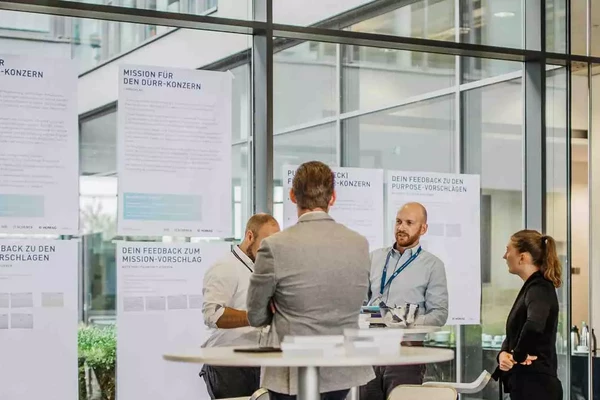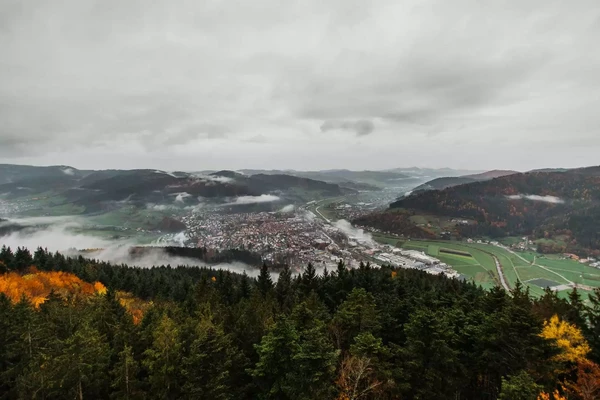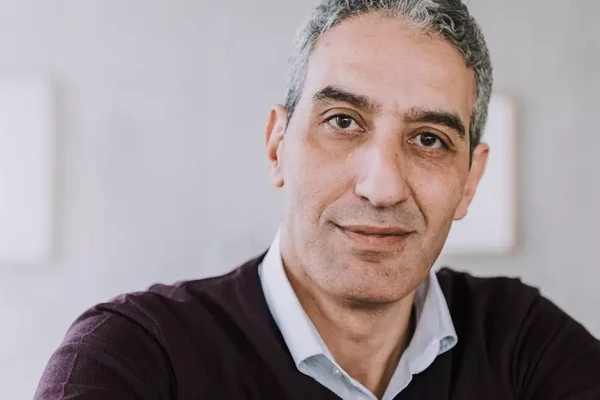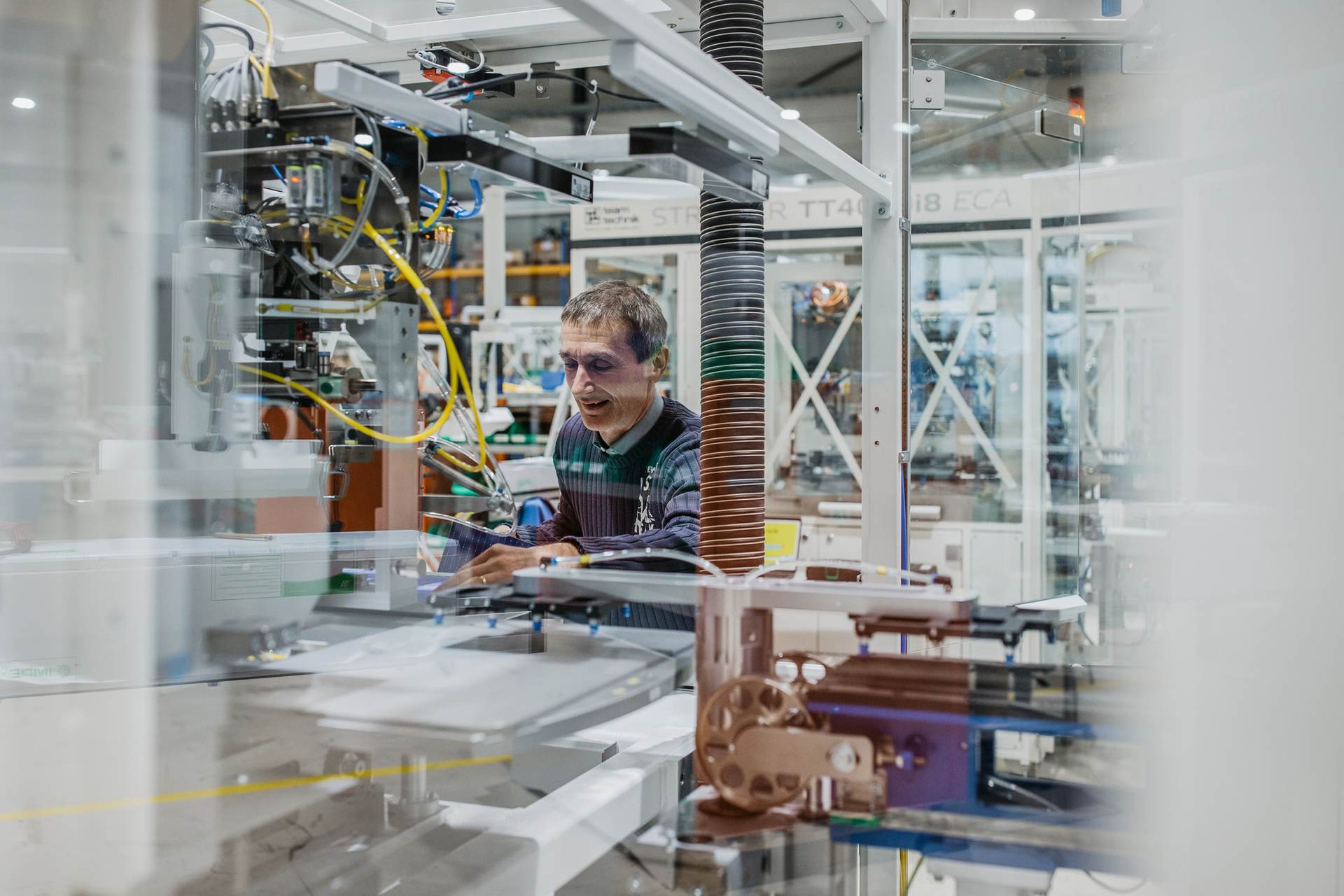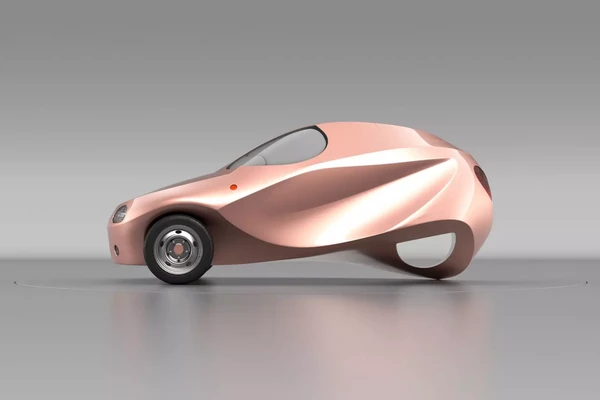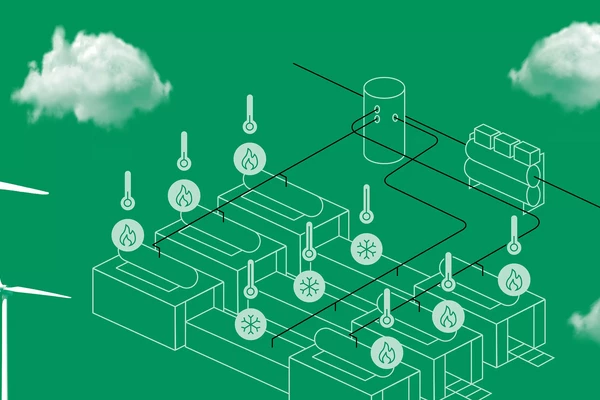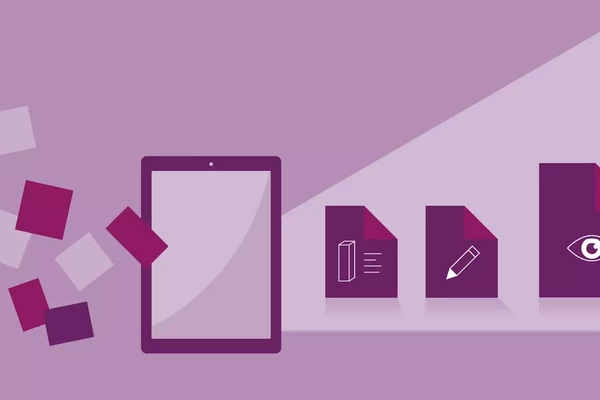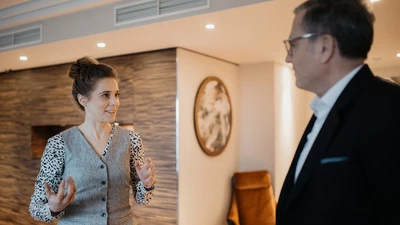
Climate, facts, and emotions
Mar 23, 2023
The fight against climate change is the biggest task humanity is facing today. To address this challenge, companies need new and, at times, unusual ideas. That is why Dürr CEO Dr. Jochen Weyrauch is meeting entrepreneur Hannah Helmke. Together with her team at her company, right°, the 34-year-old founder has developed a calculation model designed to push corporations to lower their CO2 emissions. This is a dialog about the power of facts and emotions.
Weyrauch: Good to have you here today and to have this conversation. I want to know more about your company, which is called right°. You offer a software tool that shows businesses, without the shadow of a doubt, how strong their climate impact is. That’s an important topic. It’s a burning issue not only for us but also for our shareholders and customers. How did this business idea come about?
Helmke: Even more than ten years ago, I was wondering how it might be possible to bring a better understanding of the effects of climate change into the business world. That’s when I came across a paper by the major bank HSBC. It explained why there are also financial risks associated with the continued burning of fossil fuels. I was thrilled. Someone had finally captured the essence of the matter in clear terms for the capital markets. This led to the idea of developing a scientifically robust calculation model that companies could use at any time to measure their exposure to climate risks. When I was working for my employer at the time, I didn’t manage to get the project off the ground. However, I was so driven by this idea that I saw no other option but to set up my own company.
Weyrauch: What did the founding process look like? You built the company with a partner. Was there a distribution of tasks?
Helmke: I set up the company with Sebastian Müller, who is also my life partner. We share the idea of being free to shape our lives. We see having our own company as the highest level of freedom. During the founding stage, Sebastian initially continued to work as a lawyer. When we felt the company was giving us enough security, he left the law firm and got involved full-time.
Weyrauch: Don’t these conditions make it hard to separate your professional and private lives?
Helmke: It wasn’t easy to start with. We were living and working in an industrial loft apartment in Frankfurt. Sometimes, we had corporate events there with 60 people. During that time, we blocked off our open-plan sleeping area. When the guests and catering staff had gone, we noticed how difficult it was for us to switch back to our private life. Over time, we have learned to deal with it better.
Weyrauch: Climate change is seen as the biggest problem of our time. Many people feel powerless, whereas you proactively approach companies. What exactly do you offer?
Helmke: We show companies by how many degrees the earth’s temperature would rise if the whole world acted like them. When we tell managing directors that their company does not meet the temperature target set out in the Paris Climate Agreement, we appeal to their sense of ambition. They might react with anger or annoyance. These emotions are important. We use them to open doors in order to have an objective conversation and change people’s way of thinking.
Weyrauch: Since 2022, we at the Dürr Group have been buying only green electricity in Germany, and from this year onward, we will be doing so worldwide. We are also expanding our use of photovoltaics, and soon we will be driving only electric company cars. So your calculation model could enable our company to see, at any point, how effective a certain measure is in conforming with the global 1.5°C target?
Helmke: Exactly. And depending on the sector, this is what it takes for some decision makers to understand that they need to adapt their business model so as not to jeopardize their company’s future.
Weyrauch: With your business idea you are taking an objective approach, while also emphasizing emotions as the driver of human behavior. What do you think about climate activists who act emotionally and sometimes radically?
Helmke: It’s not for me to judge this. The people in Germany who are currently fighting for an immediate abandonment of fossil fuels feel helpless and are trying to deal with their anger. I understand that because I’m often angry myself — since so many things could go so much better. However, I have decided to turn my anger into constructive energy in order to improve a system that I think needs improving.
Weyrauch: I agree with most of what you’re saying. While even justified protest must have limits, I do think that emotions are often what set things in motion and pave the way for objective arguments. And if I understand you correctly, this is how you want to change our economic system from the inside.
Helmke: Exactly. There is no point fighting against the system, but we must instead learn to work with it. This is also why I try to understand how companies and managers tick. On this note, I want to ask you a question: How does climate change affect your personal behavior?
Weyrauch: I admit that the choices I make in my personal life are not always totally sustainable. I eat meat and I’m a passionate recreational pilot. But the topic has been on my mind for a while now, both as a private individual and as a CEO.
I think this time will be marked by our development toward a sustainable company.
Dr. Jochen Weyrauch, CEO of Dürr AG
Helmke: In terms of climate, this is a now-or-never moment. In your position, you can achieve a great deal. What do you want your time as a company head to represent one day?
Weyrauch: I think this time will be marked by our development toward a sustainable company. After all, Dürr has products that are powerful levers. Paint shops account for almost half the greenhouse gas emissions generated in an automotive factory. Today, it is technically feasible to reduce these emissions to zero by converting plants from gas to green electricity. In Hungary, we are currently building the first climate-neutral painting line. Of course, it is ultimately our customers who decide if they want to invest in a clean plant.
Helmke: So should your actions be guided by your customers or do you want to be in the driving seat?
Weyrauch: We have set ourselves the target of reducing the carbon emissions of our supply chain and the emissions generated by the use of our products by at least 15 percent by 2030. To achieve this, we might have to turn down projects if the requested systems don’t meet modern environmental standards.
Helmke: Did you once want to set up your own company, too?
Weyrauch: Yes, but a different type from yours. After finishing high school, I spent some time thinking about opening a motorbike shop in Paris. But I soon abandoned that idea. Afterwards, I still took entrepreneurial risks. In the mid-2000s, I bought a part of the company I was managing at the time and ran it for several years. After that, I worked as a self-employed consultant in the private equity sector.
Helmke: You indicated earlier that you think about the effects of climate change a lot. Do you also see this issue as an intellectual challenge?
Weyrauch: Absolutely! I love learning. I’m also keen to learn from young people in our company. These conversations often get straight to the heart of the matter. I like that. For me, another intellectual challenge in this context is the use of digital tools. They give us clues as to how we can further reduce our greenhouse gas emissions. The importance of this is demonstrated by your business model — by the way, I want to ask you another question about this: Where do you see yourself in five years’ time? Do you have a vision?
Helmke: Sure. We want to be the standard that is used to measure, control, and communicate the impact companies have on the climate. Plus, the vision Sebastian and I have is that, in five years’ time, we can fully live out our personal freedom and independence through and with right°.
In conversation
Hannah Helmke
The entrepreneur, who was born in 1988, studied psychology and international business. Before setting up right°, she worked for an IT service provider and for Deutsche Post/DHL.
Dr. Jochen Weyrauch
The industrial engineer has spent many years in the automotive industry as well as in other industrial sectors and has also worked as a private equity consultant. Weyrauch has been on Dürr AG’s Board of Management since 2017, taking over as Chair in 2022.
About right°
At the core of the → company right° is a model that calculates how strong the impact of a business is on the climate. By giving a simple °C figure, it answers the question of how much the earth’s temperature would rise if the whole world had the same climate performance as this company. The benchmark for good or poor performance is the temperature target set out in the Paris Climate Agreement. It states that the temperature rise due to human activity is to be limited to a maximum of 1.5°C compared to pre-industrial levels. If a company’s impact on the climate is substantially above this figure, it is not deemed to be future-proof.
The model is based on current findings from climate science. It includes a climate model that is also used by the Intergovernmental Panel on Climate Change (IPCC). The fundamental method has undergone an assessment process to verify its scientific quality. Customers can use a basic version of this software free of charge. To receive a more comprehensive analysis, they need to buy a license.
